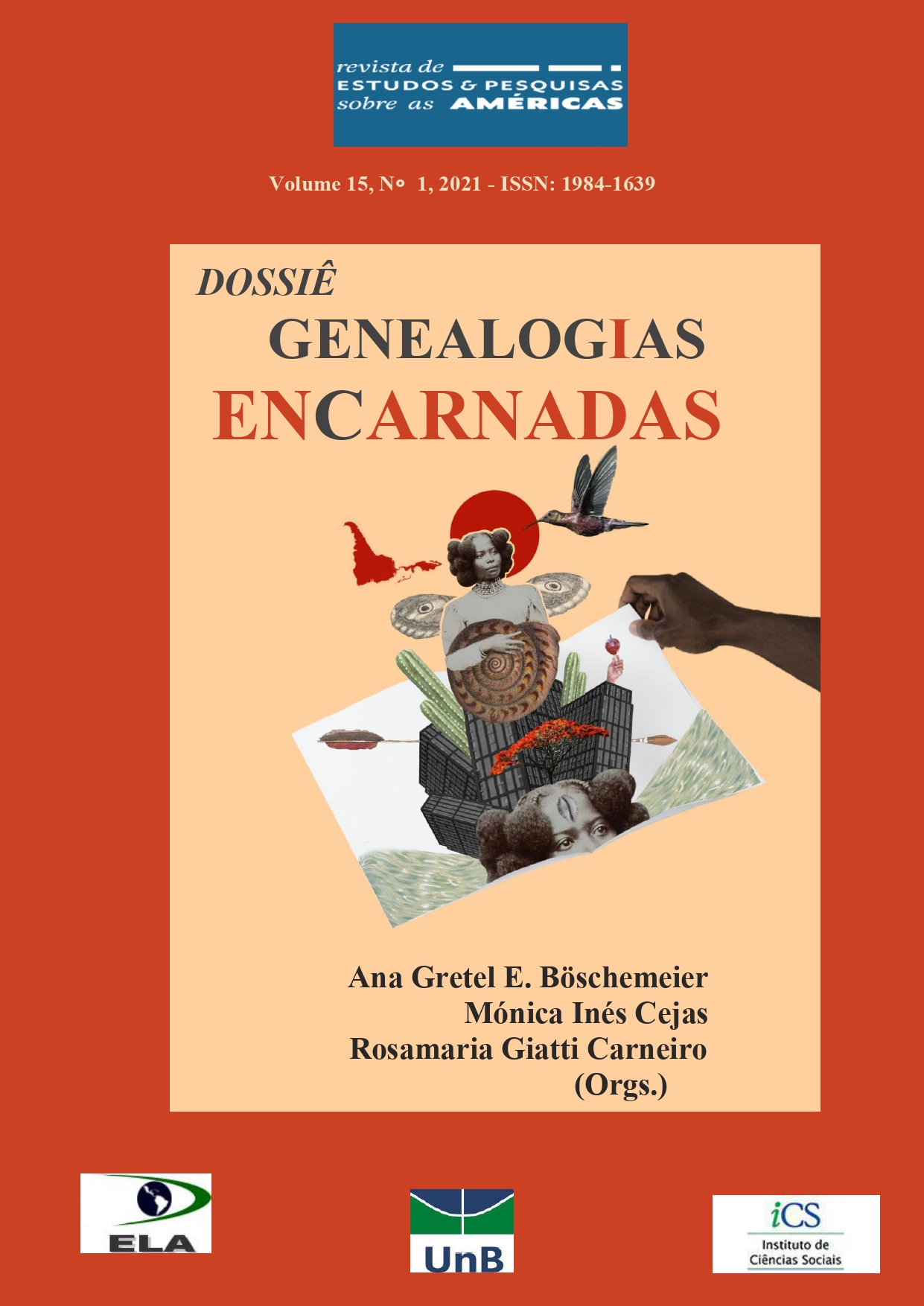"Incarnate comes from within, from the Viscera"
Interview With Teka Potiguara And Marlúcia Potiguara
DOI:
https://doi.org/10.21057/10.21057/repamv15n1.2021.40447Keywords:
indigenous women; indigenous movement; women's movement; Ceará.Abstract
This interview aims to disseminate the genealogies of self and the embodied thoughts of two Indigenous women, bringing their looks and ways of existence to the political-epistemological discussion of embodied feminisms. For this, we interviewed two female leaders of the Potiguatapuia Movement/Ceará, who are part of different generations, in order to listen to them about their existence and becoming as Indigenous women inside and outside the villages. Thus, Dona Teka Potiguara and Dona Marlúcia Potiguara recovered their childhood trajectories, life in the village, world readings on being born, dying, and caring, transits to the city, studies, and social relations. We also heard them bring into the dialogue the particularities of their intersections with other women's movements, sharing their thoughts about territory, belonging, spirituality, and about how ancestry offers them an embodied genealogy that “comes from within” is “red” and comes from “flesh”. We were four university women and a young Indigenous Tupi/Nheengatu scholar involved in the interview process, so our identification will not appear in the body of the interview.
Downloads
Downloads
Published
How to Cite
Issue
Section
License
Copyright (c) 2021 Ana Gretel Echazú Böschemeier

This work is licensed under a Creative Commons Attribution-NonCommercial 4.0 International License.
The published material is the property of the Journal, and may be reproduced in whole or in part with indication of the source.
Copyright: Authors will be responsible for obtaining the copyright of the material used. Authors who publish in this journal agree to the following terms:
a)Authors retain the copyright and grant the journal the right of first publication, with the work simultaneously licensed under
the Creative Commons Attribution License which allows the sharing of work with acknowledgment of authorship and initial publication in this journal.
b) Authors are authorized to take additional contracts separately, for non-exclusive distribution of the version of the work published in this journal (eg, publish in institutional repository or as a book chapter), with acknowledgment of authorship and initial publication in this journal.
c) Authors are allowed and encouraged to publish and distribute their work online (eg in institutional repositories or on their personal page) at any point before or during the editorial process, as this can generate productive changes as well as increase the impact and the citation of the published work (See The Effect of Free Access).


















